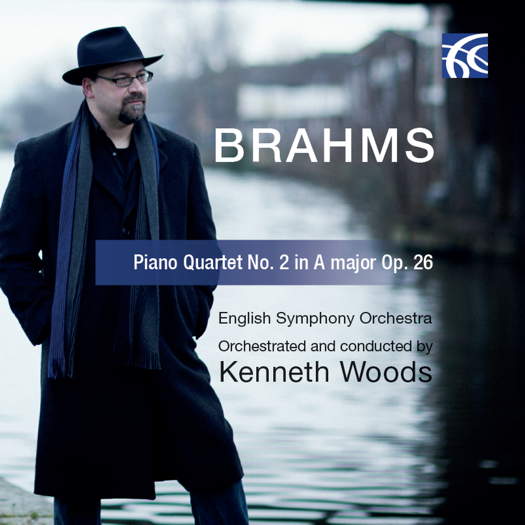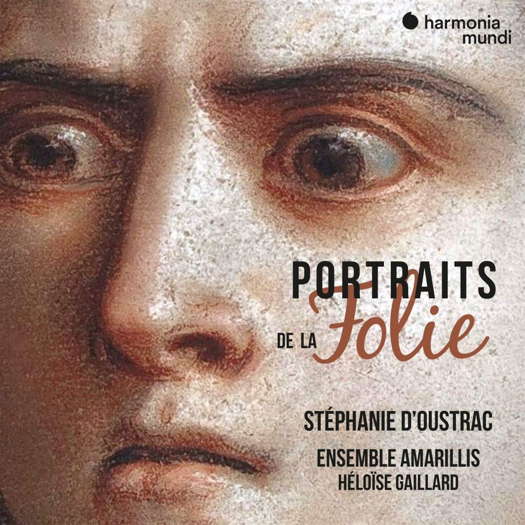 SPONSORED: CD Spotlight. A Very Joyous Disc - Brahms arranged by Kenneth Woods impresses Alice McVeigh.
SPONSORED: CD Spotlight. A Very Joyous Disc - Brahms arranged by Kenneth Woods impresses Alice McVeigh.
All sponsored features >>
- Music and Vision Daily
- Steven Stucky
- Ariel Bybee
- Weill
- Francisco Kraus Trujillo
- Skien
- Toby Belch
- Staatorchester Rheinische Philharmonie
 DISCUSSION: What is a work? John Dante Prevedini leads a discussion about The performing artist as co-creator, including contributions from Halida Dinova, Yekaterina Lebedeva, Béla Hartmann, David Arditti and Stephen Francis Vasta.
DISCUSSION: What is a work? John Dante Prevedini leads a discussion about The performing artist as co-creator, including contributions from Halida Dinova, Yekaterina Lebedeva, Béla Hartmann, David Arditti and Stephen Francis Vasta.

Truly Riveting Stuff
GERALD FENECH explores a harmonia mundi disc depicting folly in various forms
'This music is without doubt Stephanie d'Oustrac's territory, and she once again rises to the occasion with some superlative singing full of heartfelt passion, feverish emotion and dramatic intensity.'
An emblematic figure in the baroque period, Folly was personified as a character with many different facets, as extreme as it was extravagant, shaped by the whole spectrum of human passions, with Folly and Love never being far apart from one another. Like a guided tour, this recording offers a chance to hear Folly in all her various states, to better explore her different facets and highlight the traits ascribed to her, through a selection of music by the composers who paid her homage.
This excursion sets off with the 'Sinfonia' from the opera 'Jodelet' by Reinhard Keiser (1674-1739), a piece full of mischievous contrasts evoking mockery and deception. Next we have 'Air de la Folie' from the ballet Fêtes vénitiennes by André Campra (1660-1744), where 'Folly the Seductress', charming and triumphant, makes her glorious entry. 'Folly' next surrenders to the pleasures of love in the embodiment of the character of 'Semele' as depicted by André Destouches (1672-1749) and Marin Marais (1656-1728).
Listen — André Destouches: Aussitôt le bruit du tonnerre (Sémélé)
(track 5, 0:00-0:52) © 2020 harmonia mundi musique sas :
At this stage the programme takes a break from the vocal aspect through Concerto a 7 by David Heinichen (1683-1729), a piece that offers a joyful atmosphere with its dialogue between winds and strings. 'From silent shades' and 'From Rosy bow'rs' by Henry Purcell (1659-1695) depict Folly's despair and madness at being deprived of love, now that her lover is dead. Indeed, Purcell's mastery of blending words with music helps him to paint a vivid picture of human nature with a broad palette of effects: sad folly, gay folly, melancholy madness, rage, delirium and even longing for death. Truly riveting stuff, this.
Listen — Henry Purcell: From Rosy bow'rs (Don Quixote)
(track 11, 0:00-1:00) © 2020 harmonia mundi musique sas :
Georg Friedrich Handel's cantata 'Ah, crudel nel pianto mio' demonstrates that a lover's sorrow can also be a source of hope, and the composer certainly makes its meaning clear by means of nuances and contrasts, its richness of sentiments expressed in an amorous lament that is eventually succeeded by a joyous outcome. Finale: 'Folly' is overwhelmed by having to face the ingratitude of men. She wishes to deliver all mortals to sad 'Reason', so that deprived of her help, they experience the excess of their misery. All these feelings and emotions are encapsulated in two short arias by Destouches from his Le Carnaval et la Folie: 'Abandonnons le soin du monde' and 'Souffrez que l'Amour vous lie'.
Listen — André Destouches: Souffrez que l'Amour vous lie (Le Carnaval et la Folie)
(track 21, 1:18-1:56) © 2020 harmonia mundi musique sas :
The album also includes three short instrumental pieces; 'Caprice' by Marin Marais, 'Ground' by John Eccles (c1668-1736) and 'Air pour l'Amour: Rondeau' by Jean-Fery Rebel (1666-1747). This music is without doubt Stephanie d'Oustrac's territory, and she once again rises to the occasion with some superlative singing full of heartfelt passion, feverish emotion and dramatic intensity. Indeed, her expressive charisma is at times so overwhelming that one is led to believe that she is no longer Stephanie but La Folie incarnate. Ensemble Amarillis gives sympathetic support that is admirable from beginning to end. An exquisite disc, sumptuously recorded and annotated, that should appeal to a wide spectrum of music lovers.
Copyright © 7 October 2020
Gerald Fenech,
Gzira, Malta

CD INFORMATION: PORTRAITS DE LA FOLIE
FURTHER INFORMATION: HARMONIA MUNDI


